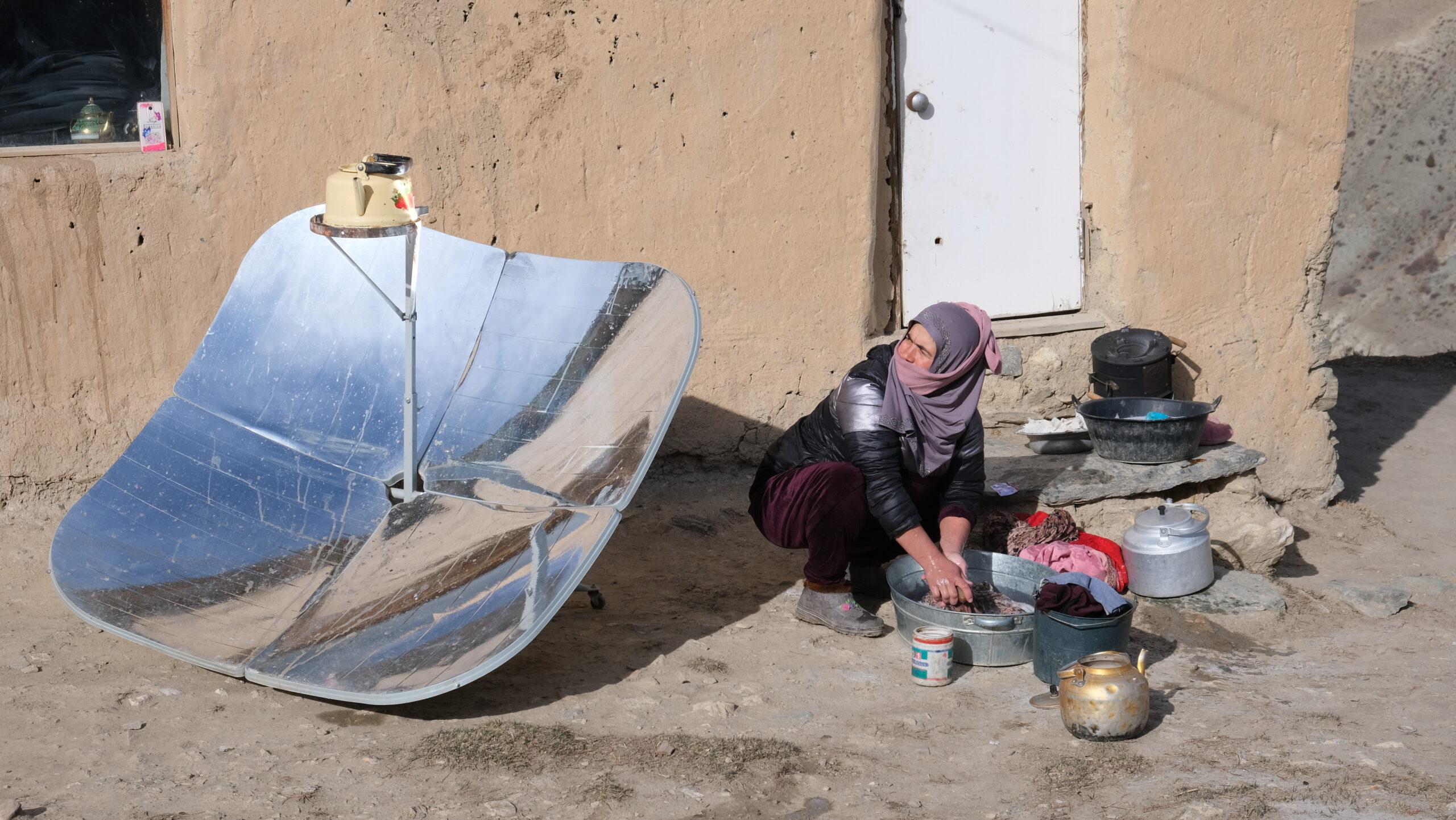In cooperation with Little Earth, a partner organization from Tajikistan, CAG works with the mountain communities of the Yaghnob Valley. Our aim is to preserve local ecosystems and promote sustainable energy solutions while increasing women’s participation in decision-making processes.
The primary target group of this cooperation are local women from the most vulnerable families in the Yaghnob Valley’s mountain communities. CAG and Little Earth work directly with these women, increasing their capacity through awareness-raising and training. By equipping local women with the necessary knowledge, skills and building networks, we contribute to their involvement in decision-making processes at the local level and support them in generating new ideas for the development of their communities. Women from the target group are also provided with sets of energy-saving equipment. These devices help in reducing their reliance on firewood and manure, improving sanitary conditions and overall comfort, while also decreasing the burden on ecosystems, CO2 emissions and indoor pollution.
In our conversation with Surayo Karimova, a participant in our collaborative project, we discuss her personal experiences, the impact the project has had on her life, and its broader effects on women in the community.
Hello! Tell us a little about yourself and about your participation in the project.
My name is Surayo Karimova, and I am 31 years old. I am a participant of the project “Sustainable natural resource management and women’s participation in mountain communities of Yagnob” from the village of Makhtimayn. I am a mother of four children, and I manage our household.
For two years, I have been actively engaged in all the project’s activities. Despite my busy schedule with children and household chores, I have consistently made an effort to attend and be involved in every event. To manage this, I asked my mother-in-law to look after my three older daughters, while I brought along my youngest daughter, who is one year old, to all the trainings and seminars. This even included our study tour to the towns of Ayni and Penjikent.
What skills or knowledge acquired from the trainings do you consider the most valuable?
I particularly enjoyed the training on renewable energy sources and the study tour. I learned a lot about technologies that contribute to fuel conservation, which, in turn, helps prevent environmental damage and improves living conditions. Before this, I couldn’t even imagine that such technologies existed.
During the study tour, I visited sewing workshops where traditional outfits and carpets are produced. This craft greatly interested me. I am hopeful that in the near future, I will begin practicing it at home.
Has the energy-saving equipment provided within the project helped to improve your daily life, and if so, how?
The provided equipment has greatly improved my daily routine. For instance, the solar kitchen has become an essential part of my routine, particularly for providing the hot water needed for frequent laundry tasks, given my large family. Previously, I relied on a traditional stove, which consumed excessive fuel and produced smoke. These issues are now resolved. Moreover, the solar lantern proves invaluable during the frequent power outages caused by the mini hydroelectric station. The pressure cooker has also become an essential tool in our household. In fact, every piece of equipment I received is in constant use.
How has the project impacted the lives and roles of women in your community?
The project significantly altered the mindset of its participants. We learned and saw things we had never even thought about before. I believe that I have become more environmentally responsible. Additionally, I have started making some plans for my personal development – I would like to open a sewing shop where I can create and sell traditional embroidery. Now, I am keenly interested in pursuing sewing courses.
Learn more about our partnership with Little Earth by visiting this and this links.
For more project updates, follow CAG’s Instagram page.
Find out how you can support our work in Central Asia here.

